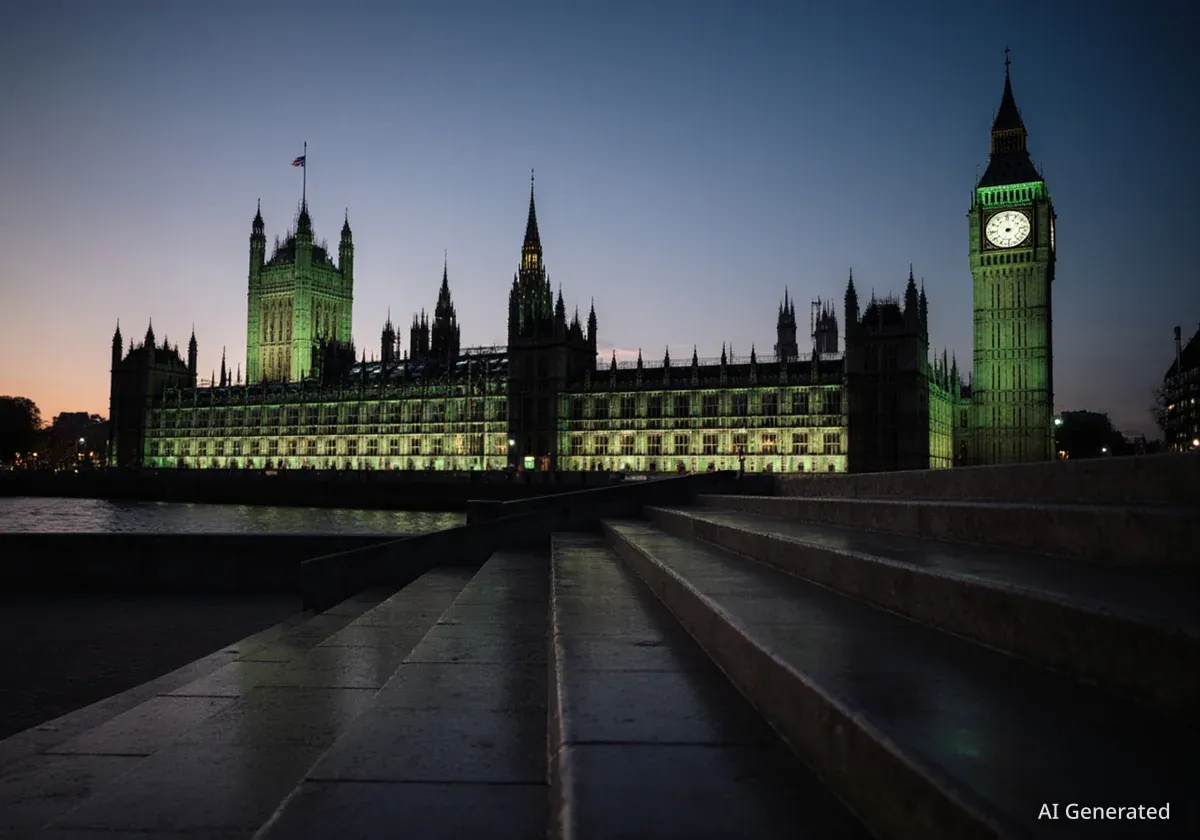Callista Gingrich has officially begun her tenure as the new United States Ambassador to Switzerland, presenting her credentials to Federal President Karin Keller-Sutter in Bern. Her arrival marks the end of a long vacancy for the diplomatic post. However, her diplomatic duties commence amidst a partial shutdown of the US government, which impacts operations at the embassy.
The shutdown, a result of a budget dispute between the US Congress and the President, means that while the embassy remains open for essential services, its public communication efforts are significantly curtailed. This situation presents a unique challenge for the new ambassador as she steps into her role.
Key Takeaways
- Callista Gingrich is the new US Ambassador to Switzerland.
- She presented her credentials to Federal President Karin Keller-Sutter.
- Her appointment comes during a partial US government shutdown.
- Embassy public relations and social media activities are restricted.
- Her husband, Newt Gingrich, was involved in a similar shutdown in 1995-1996.
Ambassador Gingrich's Official Start
Ambassador Callista Gingrich, 59, formally assumed her position after presenting her official documents. This crucial step officially recognizes her as the diplomatic representative of the United States in Switzerland. The ceremony with Federal President Karin Keller-Sutter, 61, of the FDP, took place as scheduled.
Expectations are high for Ambassador Gingrich, especially concerning ongoing trade discussions and the broader relationship between Washington and Bern. Her experience includes serving as the US Ambassador to the Holy See in the Vatican during a previous US administration.
Diplomatic Credentials
The presentation of credentials is a formal ceremony where a newly appointed ambassador officially hands their letter of credence from their head of state to the head of the host country. This act formally recognizes the ambassador's authority and establishes diplomatic relations.
Impact of the US Government Shutdown
A significant challenge facing Ambassador Gingrich is the ongoing partial US government shutdown. This situation arises when Congress and the President fail to agree on funding legislation, leading to the temporary cessation of non-essential government agency operations. Even US embassies abroad are affected by these budgetary impasses.
The US Embassy in Bern remains open to fulfill its core consular duties, such as issuing passports and visas. It can also continue to represent US interests in Switzerland. However, the shutdown has imposed a strict limitation on public outreach activities.
"The embassy in Bern shared in early October that it would 'make no further updates until the resumption of full operations – except for urgent security or emergency information.'"
This directive means that public relations events, press conferences, and even regular updates on the embassy's social media platforms are largely suspended. For an incoming ambassador, this restriction on communication can complicate initial efforts to connect with the host country's public and diplomatic community.
Social Media Silence
Social media has become a primary tool for diplomatic missions to engage with the public. The current restrictions mean the US Embassy's accounts on platforms like Instagram and Facebook are dormant for non-essential communications. This limits the new ambassador's ability to introduce herself and her priorities directly to the Swiss public through official channels.
Despite the official silence, the embassy did manage to issue a welcome message for Ambassador Gingrich's arrival. Beyond that, public-facing staff face significant constraints, leaving Ambassador Gingrich to manage her private social media presence for any personal updates.
A Family History with Shutdowns
The issue of government shutdowns is not new to the Gingrich family. Ambassador Callista Gingrich is married to Newt Gingrich, 82, a prominent figure in the Republican party. He served as Speaker of the House of Representatives during the mid-1990s, a period that saw a major government shutdown.
In 1995 and 1996, under President Bill Clinton, the US experienced what was then the longest shutdown, lasting 21 days. As Speaker, Newt Gingrich led Republican efforts to demand significant spending cuts, which President Clinton resisted. Eventually, both sides reached a compromise.
Understanding a Government Shutdown
A government shutdown occurs when US federal agencies must suspend non-essential operations due to a lapse in appropriations. This means that government employees deemed 'non-essential' are furloughed, and many government services cease until new funding is approved by Congress and signed into law by the President.
Interestingly, the political fallout from that earlier shutdown largely hurt Newt Gingrich, while President Clinton emerged stronger. Three decades later, Newt Gingrich continues to comment on Washington politics. He has described the current shutdown as an "exciting thing," viewing it as a "historic chance to dismantle the bloated state."
Future Diplomatic Challenges
Ambassador Gingrich's appointment comes at a critical time for US-Swiss relations, particularly regarding economic and trade matters. Switzerland, a significant economic partner, often finds itself navigating complex global trade policies. Her role will involve fostering strong ties and addressing bilateral issues.
Her previous diplomatic experience at the Holy See suggests a background in navigating sensitive international relationships. How she manages the current communication restrictions and works to advance US interests in Bern will be closely watched.
- Economic Relations: The US and Switzerland maintain robust economic ties, with significant trade and investment flows.
- Global Cooperation: Both nations collaborate on various international issues, including security and humanitarian efforts.
- Cultural Exchange: Diplomatic missions also play a vital role in promoting cultural understanding and exchange programs.
The initial period of her ambassadorship will undoubtedly be shaped by the domestic political climate in Washington. Despite the operational limitations, the formal exchange of credentials ensures that diplomatic representation between the two countries remains officially in place.




